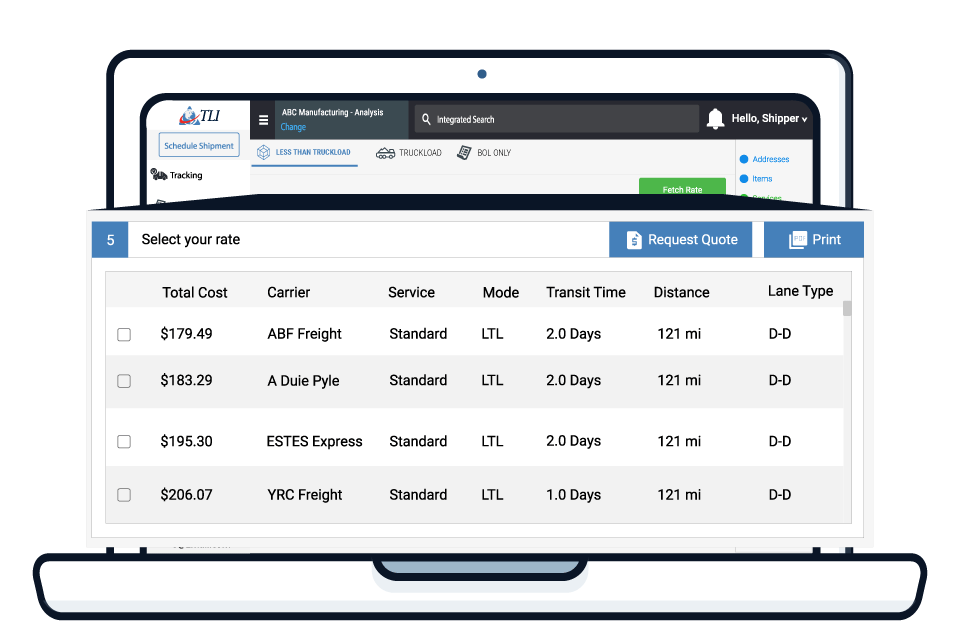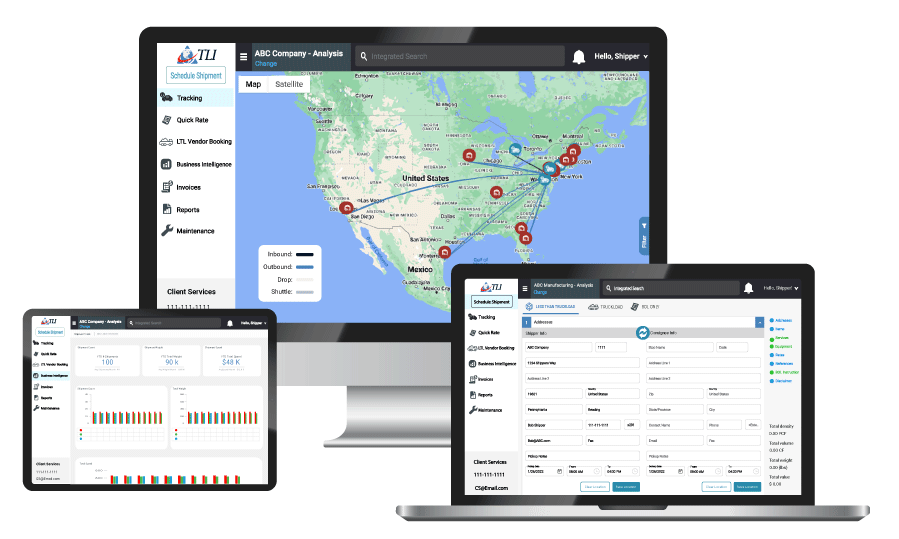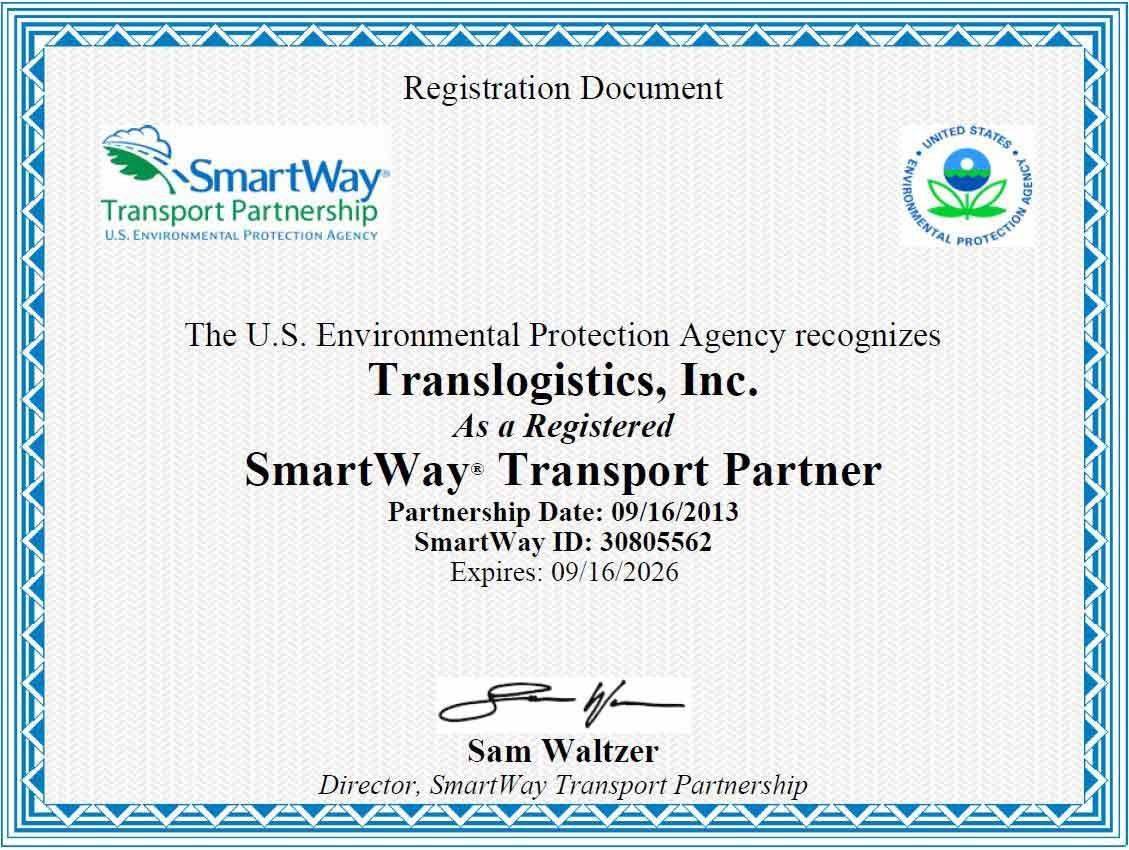Transportation Management System
Transportation Management Systems
Supply chains involve complex networks of suppliers, manufacturers, distributors, and retailers, all working together to ensure the timely delivery of goods. However, managing the movement of goods across various transportation modes can be challenging and time-consuming. This is where a managed transportation provider can excel through offering a Transportation Management Systems (TMS). This supply chain technology offering enables shippers a comprehensive solution to streamline and optimize their supply chain operations. In this article, we will explore what a Transportation Management System is and how shippers can benefit from implementing it.

What is a Transportation Management System?
A Transportation Management System (TMS) is a software solution that helps businesses manage and optimize their transportation and logistics operations. It provides a centralized platform to plan, execute, and track the movement of goods across the supply chain. TMS software typically encompasses functionalities such as carrier selection, load optimization, route planning, freight audit, documentation, and reporting.
Benefits of a Transportation Management System:
- Enhanced Efficiency: TMS automates and streamlines manual processes, reducing the time and effort required to manage transportation operations. It enables shippers to plan and optimize routes, consolidate shipments, and select the most cost-effective carriers. By eliminating manual errors and reducing administrative tasks, shippers can focus on higher-value activities, resulting in increased productivity.
- Cost Savings: With a TMS, shippers can achieve significant cost savings throughout their supply chain. By optimizing routes, consolidating shipments, and reducing empty miles, TMS helps minimize transportation expenses. It enables shippers to negotiate better rates with carriers and identify cost-saving opportunities. Additionally, TMS provides real-time visibility into transportation spend, allowing businesses to make informed decisions and allocate resources effectively.
- Improved Customer Service: Timely delivery and customer satisfaction are critical for businesses to maintain a competitive edge. TMS enables shippers to track shipments in real-time, providing visibility into the status and location of goods. This information allows businesses to proactively address delays, communicate accurate ETAs to customers, and manage exceptions efficiently. By enhancing delivery reliability, TMS helps improve customer service and build long-term customer relationships.
- Data-driven Insights: TMS captures vast amounts of transportation data, providing shippers with valuable insights and analytics. By analyzing this data, businesses can identify trends, measure key performance indicators (KPIs), and make data-driven decisions to optimize their supply chain operations. TMS offers reporting capabilities that provide visibility into carrier performance, transportation costs, on-time delivery metrics, and more. These insights enable shippers to identify areas for improvement and implement strategies to enhance their supply chain efficiency continually.
- Scalability and Flexibility: As businesses grow and supply chain complexities increase, TMS offers scalability and flexibility to adapt to changing requirements. It can integrate with other systems such as Enterprise Resource Planning (ERP) software, Warehouse Management Systems (WMS), and Electronic Data Interchange (EDI) systems, creating a cohesive ecosystem. TMS allows businesses to onboard new carriers, expand to new markets, and efficiently handle increased shipment volumes without disrupting operations.
TMS Summary:
Transportation Management Systems (TMS) play a vital role in optimizing supply chain operations for businesses. By utilizing a TMS, shippers can enhance efficiency, achieve cost savings, improve customer service, gain data-driven insights, and adapt to changing business needs. In an increasingly competitive marketplace, leveraging a TMS is essential for organizations aiming to streamline their transportation processes, reduce costs, and provide superior service to their customers.
TLI Insights
Get the latest logistics insights and tips from TLI's award-winning team. Stay ahead in transportation planning.
Questions? Email us at marketing@shiptli.com




